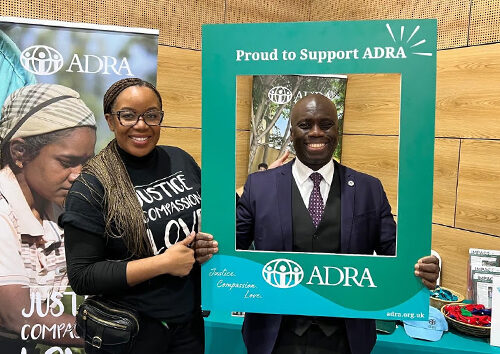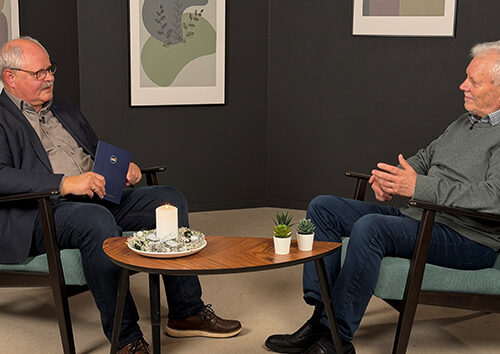11 January 2017 | St Albans, UK [Victor Hulbert] Four building projects and a multitude of children’s outreach initiatives will benefit from the 13th Sabbath offering for the first quarter of 2017. These will include a men’s dormitory at a secondary school in Croatia, a new church and centre of influence in Dublin, Ireland, retasking an old church for mission in central Oslo, Norway, and the building of a Hope Channel media centre in Poland. The final project is to further develop Children’s ministry outreach programmes that are already having surprising success across the TED.
According to TED Treasurer, Nenad Jepuranovic, each project was selected because of its potential to make a significant mission difference within their communities.
Maruševec School and Seminary, Croatia
The new dormitory at the Adventist Secondary School/Seminary at Maruševec, Croatia will not only provide improved, modern facilities for the male students, but will free up the original building to provide additional classroom space for the increasing number of non-Adventist students who have come to value Adventist education. The secondary school has 196 students this year, in contrast with 126 in 2010—a 36 percent increase for a school located in a small village of just 6,700 people! It will also help as the church upgrades facilities to come in line with modern building regulations, and to provide space for community based programmes in the surrounding area.
Centre of Influence, Dublin, Ireland
A new church facility in Dublin will significantly add to the success of their continuing Mission to the City programme. Just a few years ago the Adventist presence in this city of over 1.1 million people had reduced to less than 25 members. Their only church building was in a run-down condition. Members joined in fervent prayer to seek a way forward.

Church renovation, Oslo, Norway
There is a similar situation in Oslo where an old multi-function church facility in the centre of the city will be used as a centre of influence for the changing population of Norway’s capital city. The Betel church is populated by young adults who are keen to make a difference, but who need improved facilities in order to conduct their programmes.
Hope Channel Studio, Warsaw, Poland


The final project is based, not around buildings, but rather is focused on people. The TED Children’s Ministries department has successfully developed and trained leaders in innovative outreach programmes including KIDS in discipleship, Messy Church, and improved Vacation Bible Schools. Programmes like Messy Church – fun, craft based activities alongside music, a short talk and a meal, are proving very successful in parts of the TED such as Greece where evangelism is traditionally very difficult. Often held in a neutral venue or even in the street or a local park, the programme breaks down prejudices, establishes strong friendships, and leads to further opportunities for witness. The plan is to focus on further developing these programmes within each Union.
Missionary Challenge in the TED
 These five mission projects represent just a sample of the ways that members across the Division are endeavouring to share their faith. To assist them, the TED has chosen to focus on five key areas: Leadership development, Youth, Family, Children and Mission-Outreach. “They are the starting points for all that we do,” states Raafat Kamal, TED President. “They are the priorities in our strategic planning because they are also the main challenges that we face across Europe.”
These five mission projects represent just a sample of the ways that members across the Division are endeavouring to share their faith. To assist them, the TED has chosen to focus on five key areas: Leadership development, Youth, Family, Children and Mission-Outreach. “They are the starting points for all that we do,” states Raafat Kamal, TED President. “They are the priorities in our strategic planning because they are also the main challenges that we face across Europe.”
While the TED may be the smallest of the 13 world Divisions of the Seventh-day Adventist Church, it is potentially also the most diverse. Many of the 22 countries that make up the TED have become very secular, some with as few as 4% of the population attending church. These contrast with countries in the south and east of the Division where Orthodox Christianity, Catholicism or Islam have a significant influence within the culture.
Within that context innovative evangelism and programmes like Pathfindering are making a difference. Mads Kivikoski, the Pathfinder director in Denmark, stated recently that in the Nordic countries Pathfindering is one of the best outreach opportunities they have. That is also true in the Baltic States where over half of the children that come to their summer camps are from non-Adventist backgrounds. In Greece, Messy Church is one of the few programmes that is making a breakthrough within the highly Orthodox population.


Daniel Duda, TED Field Secretary states, “The challenge for Europe is to preserve the core of the Adventist message without compromising its eternal values, yet to move on in forms of contemporary Adventism so that it reflects how people think and live in today’s multi-racial, multi-cultural, multi-national Europe with all its diversity.”



While the challenge of secularism is great, Adventists in the TED are continuing to find ways to make a difference in their community. That difference ultimately allows them to share Christ. [tedNEWS]
tedNEWS Staff: Victor Hulbert, editor; Esti Pujic, associate editor
119 St Peter’s Street, St Albans, Herts, AL1 3EY, England
E-mail: [email protected]
Website: www.ted.adventist.org
tedNEWS is an information bulletin issued by the communication department of the Seventh-day Adventist Church in the Trans-European Division.





